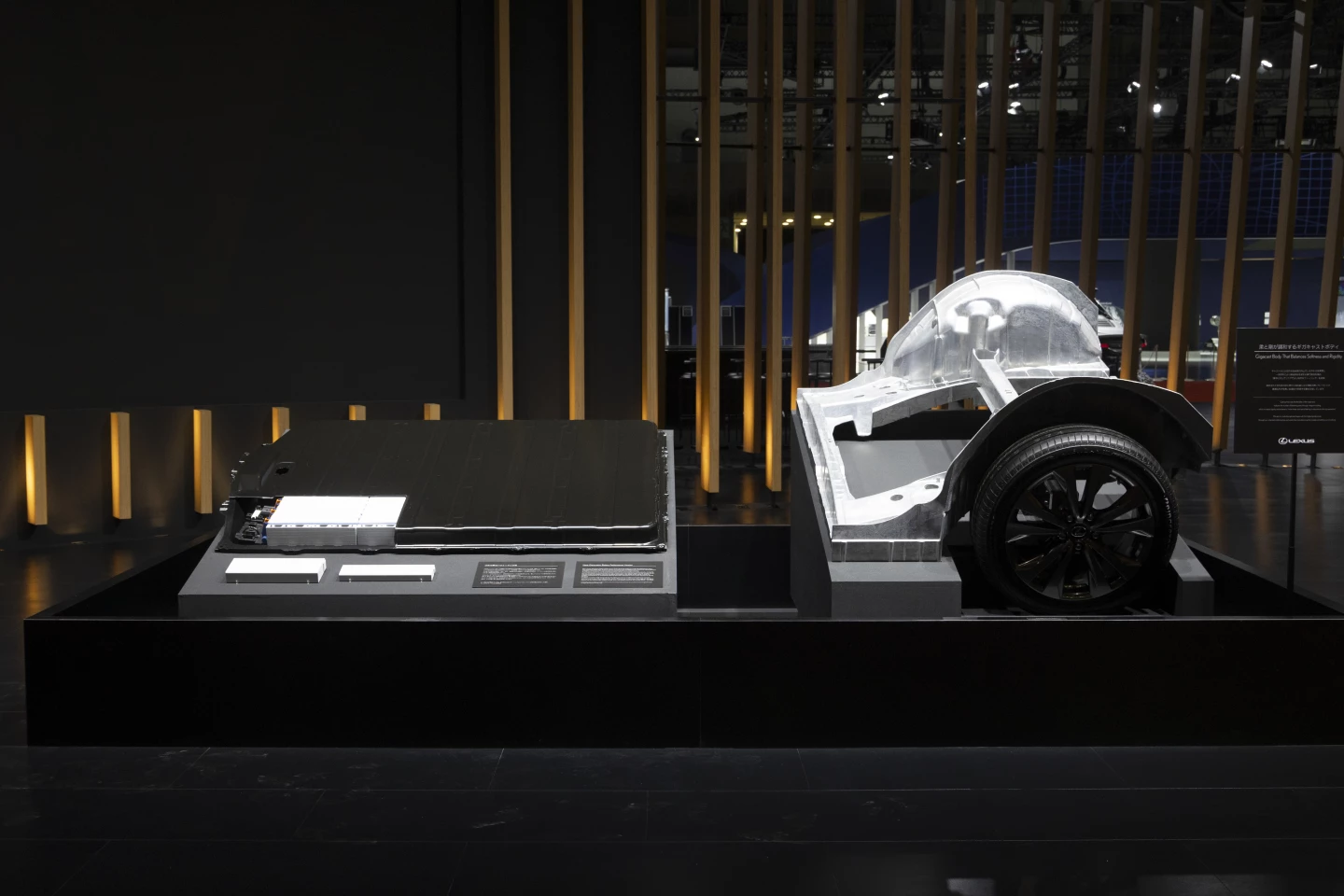Lexus won't be needing conveyor belts once the "gigacast" chassis of its next-gen electric cars is put together; the company has announced it's introducing a "self-driving assembly line," where cars will autonomously move between stations.
The announcement was made at the first annual Japan Mobility Show. Yes, there were also concept cars, notably the angular, electric LF-ZC, which Lexus says is "set for release in 2026."
What's interesting about this machine? Let's see ... Blah, blah, steer by wire, blah, blah, AI voice system "reminiscent of conversing with an attentive and accommodating butler," yada yada, "wide stance" (heh heh), blah blah bamboo fibers, yada yada "prismatic high-performance batteries ... Aims to achieve twice the range of conventional BEVs." Righty-o.

Here's something: the LF-ZC, says Lexus, will be able to "replicate various car operations, driving characteristics, sounds and vibrations tailored to individual preferences." Indeed, apparently you'll play video games using the car's steering wheel and pedals as controllers, and then be able to download the feel of the game car to run in the real car on the road.
But look, we've all seen concept cars before, and at this late stage in the game we're all big and ugly enough to know concept cars are 90% baloney. Probably the most interesting thing about the LF-ZC is that it'll roll out of the factory looking like it's already been T-boned.
But the way it'll roll around inside the factory is fun; Lexus says it's designing its next generation of electric cars around a self-driving production line. Each car's underlying chassis will be a three-part, rigid modular structure formed using "gigacasting," and once these three parts are put together, with the battery, motors, wheels and "wireless terminal components" pre-installed, the nascent car will be able to drive itself through the rest of the manufacturing process.

This won't just obviate the need for conveyor belts, it'll also give the company a bunch of flexibility in terms of factory layout. Indeed, since this chassis will likely form the basis for a whole family of body types, Lexus will be free to share or separate various production stations on a model-by-model basis.
Neat idea!
Source: Lexus














